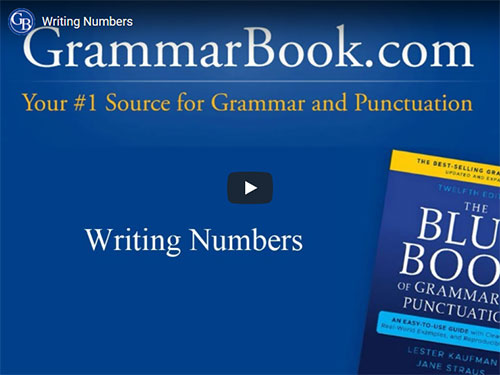|
Paulina seems optimistic.
The blueberry muffins smell delightful.
That essay is certain to persuade people. |
Most of us will be familiar with sentences such as these. We may even find ourselves using such expressions daily, as they contain a common structure for describing something in writing or speech.
Each sentence includes a subject, a verb (more specifically, a linking verb), and an adjective or adjective phrase:
subject > linking verb > adjective or adjective phrase
Paulina > seems > optimistic
muffins > smell > delightful
essay > is > certain to persuade people |
The adjective or adjective phrase provides descriptive detail about the sentence subject. It also completes the meaning of the verb (the simple predicate).
Because it does these two things, the adjective or adjective phrase is known as a predicate adjective. Predicate adjectives are also referred to as subject complements.
Predicate adjectives will always relate to the subject—never a sentence object—and follow linking verbs such as be, seem, smell, feel, become, look, and appear.
Examples
Sabrina appears happy today.
Dolma looks regal in that dress.
Jack feels positive about the agreement. |
Predicate Adjectives: More Examples
Predicate adjectives also can modify pronouns. In addition, note how a sentence can include multiple predicate adjectives, a long predicate adjective phrase, or predicate adjectives in more than one clause.
You are generous, humble, and kind. (three predicate adjectives)
They seem encouraged to apply for the volunteer opportunity. (long predicate adjective phrase)
She becomes even more determined when told something is not possible. (predicate adjective phrases in different clauses) |
Predicate adjectives can modify gerunds as well:
Running can be good for cardiovascular health.
Swimming for three hours sounds exhausting.
Sitting under the umbrella in the backyard will be relaxing. |
The order of predicate adjectives can be varied:
How exhausting swimming for three hours sounds!
Generous, humble, and kind, you are.
Optimistic, Paula seems. |
On a related note, it's important to distinguish predicate adjectives from attributive adjectives. Where a predicate adjective follows a linking verb to complete its meaning, an attributive adjective precedes a noun to modify it.
Predicate adjective: My car is red.
Attributive adjective: My red car goes 135 miles per hour. |
Understanding the difference between predicate and attributive adjectives will allow you to identify the functions of the words in a sentence such as the following:
| Awake and determined, they were destined to cross the desert by nightfall. |
In this sentence, the words awake and determined appear before the sentence subject, they. However, while the two adjectives might appear to be attributive in their positions, they are not. They are still beholden to the sentence verb (were) in completing its meaning. Another way to write the same sentence would be:
| They were awake, determined, and destined to cross the desert by nightfall. |
Now compare that sentence with one such as:
Stitched with silk thread and platinum buttons, the doll appears valuable. or
The doll stitched with silk thread and platinum buttons appears valuable. |
In these sentences, the adjective phrase stitched with silk thread and platinum buttons modifies the subject noun and not the verb. This makes it attributive. Only the word valuable is a predicative adjective. We would not write the sentence as:
| The doll appears stitched with silk thread and platinum buttons and valuable. |
Predicate Adjectives: Don't Let Adverbs Trick You
A common mistake in English is using an adverb in place of a predicate adjective.
Examples
Sayama felt badly about knocking over the Andersons' prized statue.
This paella tastes poorly.
The numbers on the report appear accurately. |
This happens when a linking (intransitive) verb in certain statements is overlooked and confused with either a transitive verb or an intransitive verb that is not a linking verb.
If a linking verb is present for the sake of being descriptive, it will require a predicate adjective.
If the verb is transitive, meaning it takes an object to complete its meaning, it would be modified by an adverb instead of a predicate adjective. If the verb is intransitive but not a linking verb, it would likewise be modified by an adverb.
Examples: Predicate Adjective Correct
Sayama felt bad about knocking over the Andersons' prized statue. (linking verb)
This paella tastes poor. (linking verb)
The numbers on the report appear accurate. (linking verb with an understood omission: …appear [to be] accurate) |
Examples: Adverb Correct
Sayama felt badly because she was wearing two pairs of gloves. (intransitive verb that is not a linking verb)
I have a severe cold, so I will probably taste the paella poorly. (transitive verb with direct object)
Please ensure the numbers on the report appear accurately. (intransitive verb that is not a linking verb; the word appear indicates the order or arrangement of the numbers as opposed to their correctness) |
Related Topics
Adjective Examples: How to Make Your Writing More Descriptive
Arranging Multiple Adjectives
Comparative Adjectives
|





